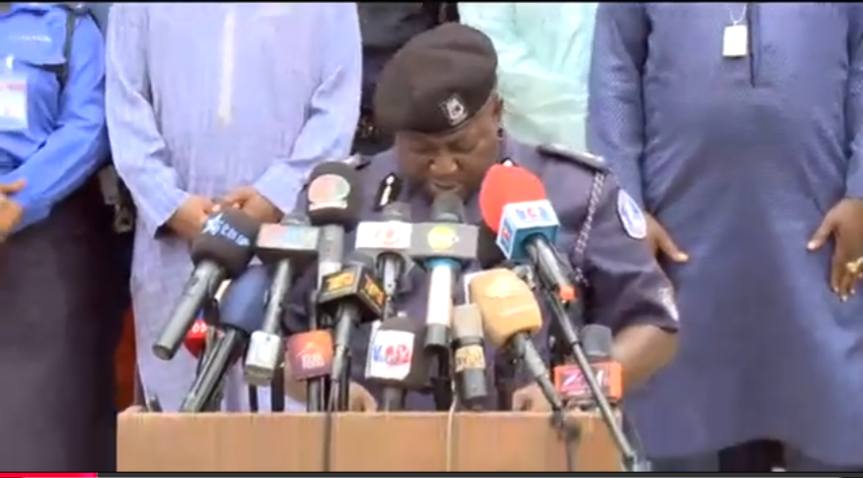Three prominent Gambian media outlets—QTV Gambia, Kerr Fatou, and The Fatu Network—have submitted crucial video evidence before the High Court in the ongoing trial of Ousainou Bojang and Amie Bojang, the accused in a widely followed police shooting case. The footage, which covers a police press briefing held on September 15, 2023, was presented following a court order secured by defence counsel Lamin J. Darboe.
When the case was called before Justice Ebrima Jaiteh, Director of Public Prosecutions A.M. Yusuf appeared for the State, while lawyers Lamin J. Darboe and Adama Sillah represented the accused.
The three media houses were directed to comply with subpoenas and present unedited video footage of the September briefing. QTV’s Deputy Manager, Alassan Tunkara, was first to comply, submitting a flash drive containing the full recording. The footage was played in open court without objection and was marked as Exhibit D35.
Next, Fatou Drammeh, Program Coordinator of Kerr Fatou, presented their version of the video, which was played and admitted into evidence as Exhibit D35A. Dawda Baldeh, representing The Fatu Network, followed suit with a third video submission, which was viewed and marked as Exhibit D35B.
Justice Jaiteh thanked the media houses for complying with the court’s directive, saying, “Without the evidence, the court can’t reach justice, and we thank you for coming and respecting the court order.” However, he expressed concern over the absence of a representative from the Office of the Inspector General of Police, describing the no-show as “disrespectful to the court.”
After the video submissions, the court resumed the cross-examination of Deputy Inspector General of Police Modou Sowe, who had previously given testimony. Under questioning from Counsel Lamin J. Darboe, Sowe admitted that the claims made during the police press briefing were based on intelligence rather than verified evidence.
Sowe confirmed that he did not have the phone number of the accused, despite stating earlier that it was under surveillance. He also acknowledged that the statement about the accused having a firearm was sourced from intelligence and not from a formal witness account or investigation report.
During additional cross-examination by Counsel Adama Sillah, Sowe clarified that he does not personally investigate criminal cases, relying instead on the Crime Management Unit (CMU). He stood by the purpose of the press briefing, stating it was intended to inform the public and denied being under pressure from any authority when making the statement.
When asked if former government spokesperson Ebrima G. Sankareh had received information directly from the police regarding the accused, Sowe said he was unaware of any such communication. Following the completion of both lawyers’ cross-examinations, Deputy IGP Sowe was formally discharged from the witness stand.
The next witness to take the stand was National Security Advisor Abubacarr Sulayman Jeng, the third individual subpoenaed by the defence. During questioning, Jeng confirmed his position as the country’s current security advisor.
Counsel Darboe asked Jeng whether he had claimed, during the press briefing, that the accused was linked to a “rebellion group in Cassamance.” Jeng responded that he could not remember making such a statement and would need to watch the footage to confirm.
The defence then requested that the relevant portion of the press briefing video be replayed to refresh the witness’s memory. The court granted the request, but the section played did not include the specific remark in question. The court said the video review and examination would continue in the next session.
The case, which has drawn significant public and media attention due to its political and security implications, was adjourned to today for continued hearings.
The accused, Ousainou and Amie Bojang, are facing charges related to a deadly shooting incident involving members of the police force. The case continues to generate intense interest both in Gambia and among the diaspora, with observers closely monitoring how the evidence presented, including the contested press briefings, will shape the trial’s outcome.
